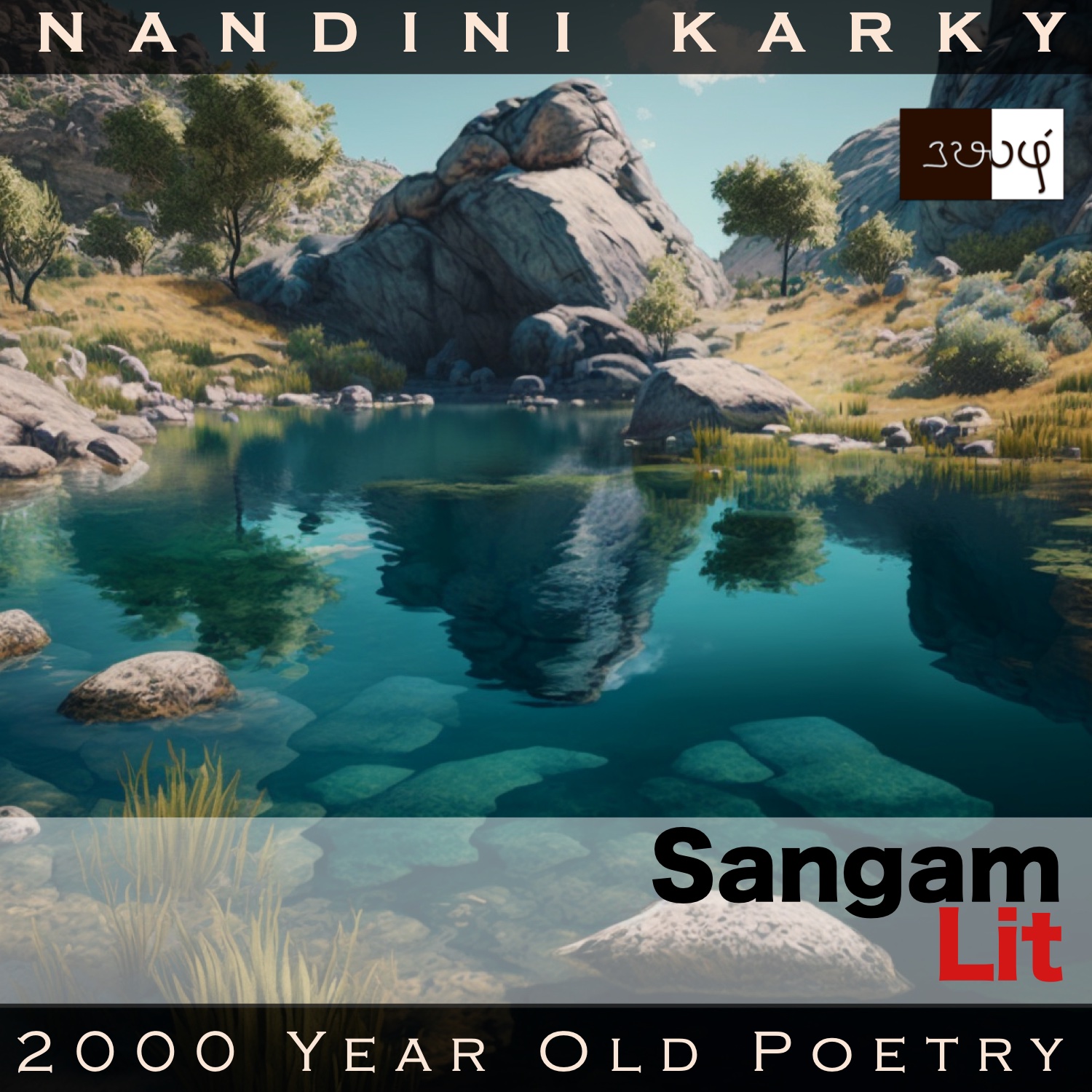Podcast: Play in new window | Download
Subscribe: Apple Podcasts | Spotify | Amazon Music | Android | iHeartRadio | TuneIn | RSS | More
In this episode, we perceive the angst in a poet’s heart, as depicted in Sangam Literary work, Puranaanooru 118, penned about the Velir King Vel Paari by the poet Kabilar. The verse is situated in the category of ‘Pothuviyal Thinai’ or ‘Miscellaneous matters’ and talks about the ruin that has come to the king’s country after his demise.

அறையும் பொறையும் மணந்த தலைய,
எண் நாள் திங்கள் அனைய கொடுங் கரைத்
தெள் நீர்ச் சிறு குளம் கீள்வது மாதோ
கூர் வேல் குவைஇய மொய்ம்பின்
தேர் வண் பாரி தண் பறம்பு நாடே!
A short song continuing in the theme of the distress experienced by Paari’s land. The poet’s words can be translated as follows:
“Surrounded by rocks and boulders, the small pond once having a sturdy bank, akin to an eight-day moon, and filled with clear water, is in ruins, without those to protect. Alas! So is the cool ‘Parambu’ country, ruled by Paari – the one, who wields sharp spears with the power of his rounded shoulders, and the one, who grants chariots many!”
Let’s delve into the nuances here. The poet has been talking about different elements to highlight the changing fate of the Parambu country. In this verse, his attention falls on a feature of the land – a small pond amidst the rocks and small hills of the land having crystal clear water. He describes how it had a sturdy boundary around it in the shape of an eight day crescent moon, almost a semicircle. But, now because it has no one to take care of its banks, it’s in a ruined state, the poet tells us. A moment to appreciate the water management of the ancient Tamils here. Not only did they build ponds along their terrain to quench the searing thirst of travellers in summer, but they seem to have also ensured to maintain and protect it. But when fates change and people leave, the pond is left in ruins and so is the entire Parambu land of Paari, the strong and generous one, after he is no more, the poet concludes.
An observation about a simple feature! There is neither grandeur or expansive emotions here. All the poet wants to highlight is the devastation of the land after the king’s demise and projects his own desperation at losing his friend on an element of the land. And, this brings me to the question, should works of art be only about grand and profound things? Or can they be about something simple and relatable? As for me, I think embracing art as it is, without expectations of what it should be, is the way to be!




Share your thoughts...